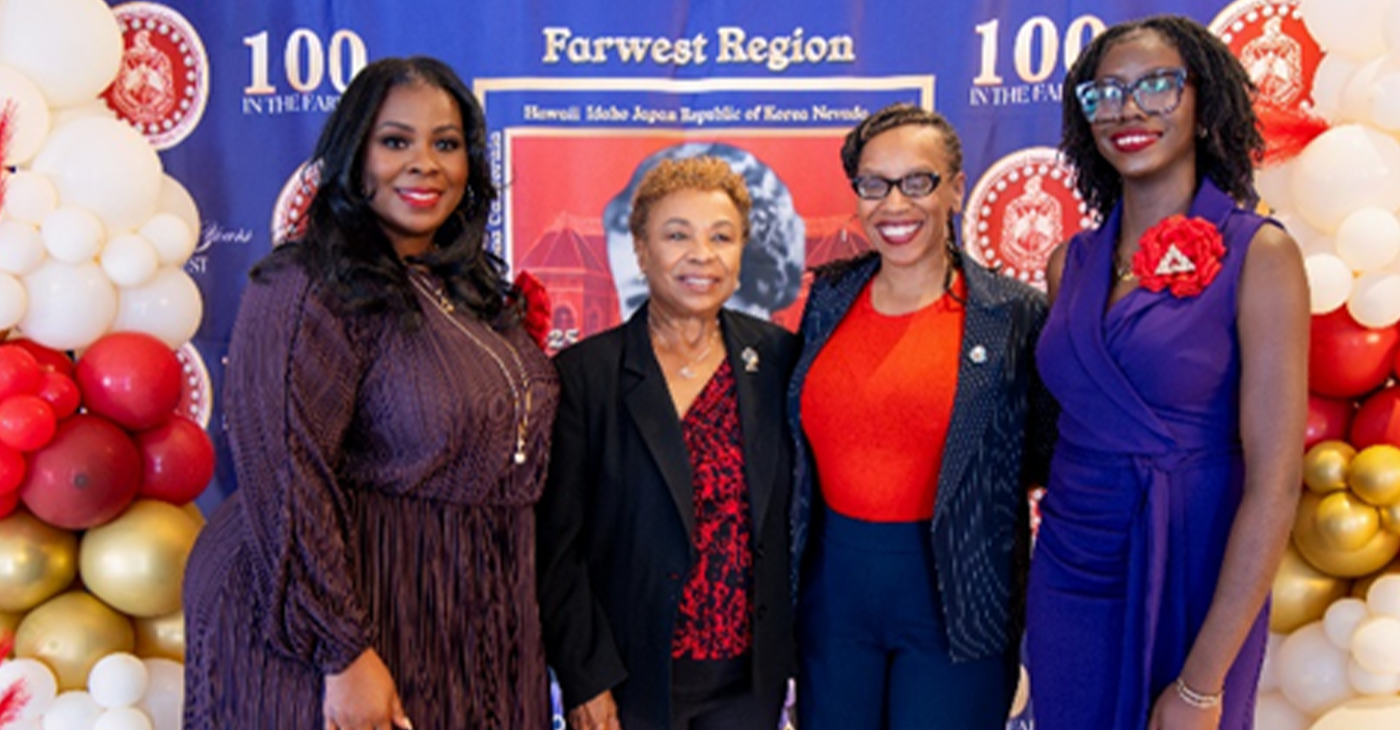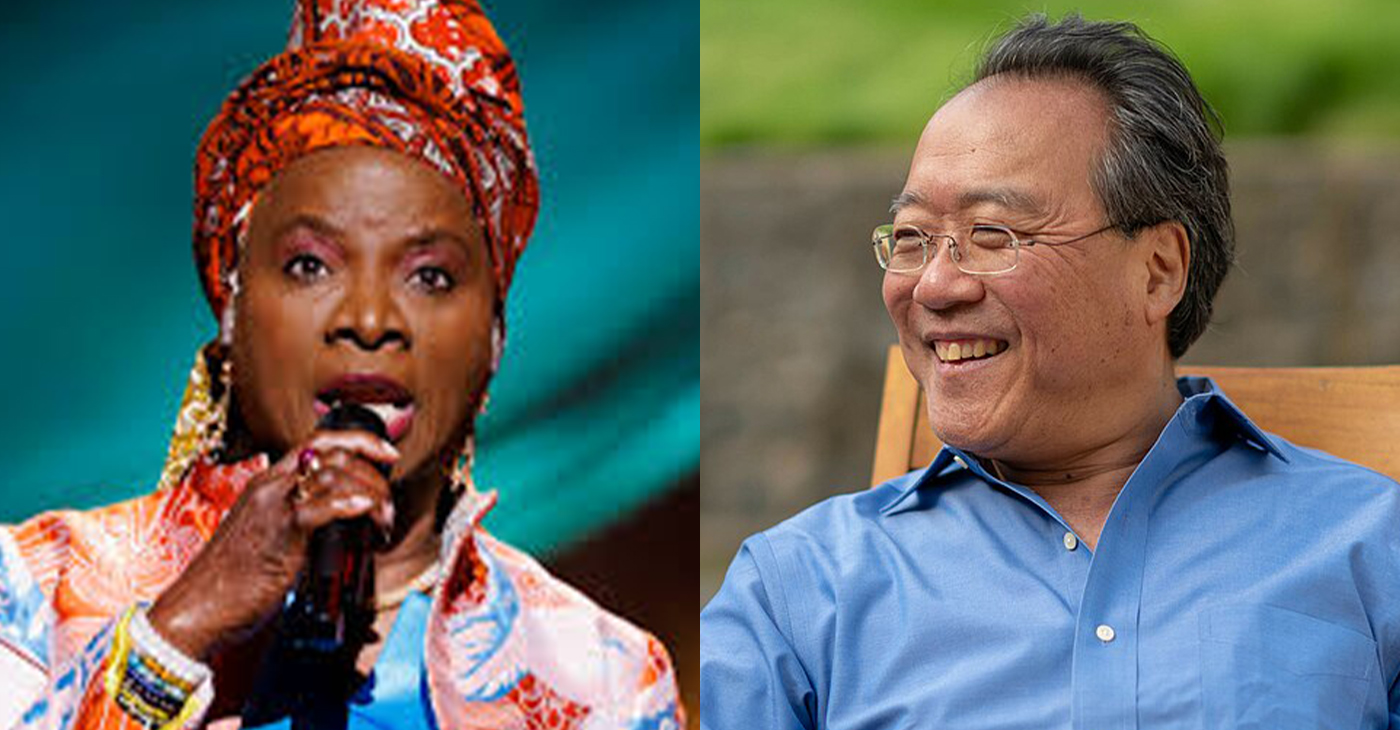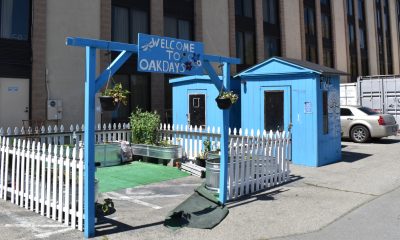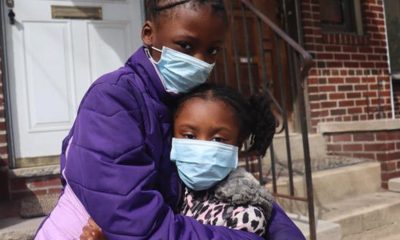Berkeley
Unhoused Berkeley Writer With Neck Cancer Seeks Chemo Recovery Shelter

Timothy Busby, a 56-year-old writer who lives in a van in Berkeley, just started chemotherapy for cancer in his neck. He has tried to plan ahead by arranging indoor shelter for his recovery through his healthcare, non-profit, state and county programs but has been unable to secure it. A friend of his, Alastair Boone, is putting together a fundraiser to secure him a hotel room to recover in, and Busby is accepting the help.
“There are so many different systems that are failing in this case,” said Boone, who criticized Busby’s healthcare provider for not taking into account his shelter needs, a crucial factor in his recovery. Busby pays $507 a month to Blue Cross Blue Shield Mississippi, the vast majority of his $733 disability income. They have not agreed to provide him a private space for his recovery once he exits the hospital.
Robbi Montoya, the program director for Dorothy Day House, describes Busby as “a personal friend.” She has offered him shelter space for his recovery, which was difficult to arrange. In order to reduce the risk of COVID for those that use their shower, laundry and shelter services, Dorothy Day House has reduced their services by about two-thirds.
Busby is worried about the risk of infection if he is sharing space, particularly showering space, with other people who live on the street during his recovery. He is hoping to secure a hotel room instead for a two- to three-week period after he exits the hospital, which Montoya also thinks would be his best practical option.
“A shelter environment would be a last resort,” she said. “If he can’t continue to be in a medical facility throughout his full recovery, the next best thing would be a hotel room where he can be safe and clean.”
“My immune system will be really low as it is with anybody who receives chemo and radiation,” said Busby. “So, I’ll be more susceptible to COVID. Given the circumstances of being on the street, that could very easily be a death sentence.”
Although the County of Alameda and the State of California launched programs to protect people experiencing homelessness from COVID-19, these programs are failing to meet Busby’s needs. At the time of writing, data shows that Operation Comfort, a state and county program, has secured 873 hotel rooms and that 129 of them are currently empty. But Busby doesn’t qualify for this program as it is currently limited to people who are COVID-19 positive, symptomatic, or have had contact with those who have tested positive for COVID.
Project Roomkey and Operation Safer Ground, which are temporary COVID response state and county-funded shelter programs for COVID-19 victims, could possibly have been options for Busby a little over a month ago, but he is not been able to access them now.
The County of Alameda’s web site states that as of November 1, “no additional guests will be placed in Safer Ground sites.” Of Project Roomkey, the site says, “the program will soon be winding down.”
In an e-mail, Alameda County Communications Director Jeri Randrup claimed that “stimulus funds are no longer available” for Project Roomkey hotels. State funding could change and it is possible the programs could expand between now and January when Busby is set to be released from the hospital, but none are known at this time.
When I interviewed Busby over the phone a few days before his chemotherapy started he was becoming accustomed to using a feeding tube at The Acute Care Tower in Highland Hospital. He said breathing too deeply felt like someone was hitting him in the ribs. His tone sounded subdued and rugged. He saw his cancer and chemo as small bumps in the road compared to more traumatic past events in his life. He anticipates receiving help, and he also had fond memories in his past that he felt were “just part of the balance.”
“Ying yang, tit for tat, whatever you want to call it” he said. “You can’t have extreme happiness without extreme unhappiness.”
Busby grew up in Mississippi, then moved in California at age 19 and learned about asbestos abatement. He moved back to Jackson, Miss., at age 24, starting his own successful and lucrative asbestos abatement business. He described the times when his business was booming as “unbelievably good,” and that he “got to see and experience a lot of things that most people don’t.”
But Busby said he “experienced some unbelievably horrific times as well” in Mississippi. He moved from Jackson to Ocean Springs where, during a two-year period, he lost six close family members and friends as Hurricane Katrina destroyed his house and everything he owned. He tried to start his business back up, but continued to face setbacks and never came close to succeeding at the level he previously had. Worse times were soon to come.
In 2011, he was shot at point-blank range on the left side of his face. His doctors told him he had a 5% chance of survival. It took him two years to have a minimal understanding of what even happened. The injury required 14 different surgeries. Eventually, his wife left and he started living under a bridge in New Orleans.
“It was very dangerous,” Busby said of being homeless in New Orleans. “People got killed there all the time and it was never shocking.”
He moved back to California in his mid-40s, eventually settling in Berkeley, where he has published articles primarily about life from the viewpoint of being homeless. Although he currently lives in a van, much of his writing is informed by the five years he spent sleeping on cardboard, under a bridge or in front of stores and dumpsters. Recently he published an article in Street Spirit which serves as a grave warning to those at risk of eviction related to COVID-19 where he described five stages of becoming homeless. It was through his work with Street Spirit, where he has published about a dozen and a half articles, that he met Alastair Boone, who edits the publication.
“We were just talking and he mentioned that he was worried that he wouldn’t be housed throughout his recovery,” Boone said. “It’s not like he asked [for help]. I think the assumption with most people in Tim’s situation is that you just have to make it work, do your best to find a safe place.”
Boone is happy to help Busby with her fundraiser but laments that so many others are likely in a similar position and cannot get the help they need through healthcare or state and county programs.
“It’s heartbreaking knowing that he wouldn’t have had anything come through for him if we didn’t happen to be connected,” she said.
Last summer, Busby published an article in Berkeleyside that served as a tribute to a close friend, Michelle Marie Larson, and described how her lack of shelter contributed to her death.
The tribute also spoke of her generosity and how she would always share the little she had, including her food stamps, feeding Busby and others who were hungry. When he is able, Busby also helps to feed people, and volunteers regularly with Food Not Bombs.
“I really like Berkeley and I really enjoy life,” said Busby. Berkeley is where he claims he has found the best people he has ever met.
Shortly after moving to Berkeley he witnessed his “first experience of agape love.” He saw a woman, who was also experiencing homelessness, give a homeless man who appeared to have even less than her, both materially and in terms of cognitive capability, her only coat on a cold night.
“That guy doesn’t have the ability to get a coat,” he recalls her saying in reaction to his baffled response to her choice, “I do.”
People like her, Boone, Montoya, and Larson have all impressed Busby who said lately he has “met more and more people that do things because they’re the right things to do, and not because of what they’ll gain.”
Boone finds that relying on individuals to do the right thing is not a sustainable model and said that what “should fall on a welfare program, falls on the people.” She wishes government programs met people’s needs more often.
“One of the reasons we see such a high mortality rate amongst people that live on the street is that when you are unsheltered and you fall upon bad health you usually don’t have resources” she said. “You just have to make use of what’s available to you outside and in most cases that makes your chances of survival very low. That’s unacceptable.”
Readers who wish to donate to help shelter Busby during his recovery can do so through this link:https://www.gofundme.com/f/house-tim-busby-during-his-chemo-treatment
Arts and Culture
Farwest Region Deltas Celebrate Centennial With “September Breakfast” Honoring Vivian Osborne Marsh
The region was established in 1925 under the leadership of Vivian Osborne Marsh, who became its first Regional Director. Marsh was a pioneering scholar and civic leader, earning recognition as the first Black woman to receive both a bachelor’s and a master’s degree in anthropology from UC Berkeley.

By Antoinette Porter
Hundreds of members of Delta Sigma Theta Sorority, Inc., and their guests gathered at the Martin Luther King Jr. Student Union at the University of California, Berkeley, to mark the 100th anniversary of the sorority’s Farwest Region.
The region was established in 1925 under the leadership of Vivian Osborne Marsh, who became its first Regional Director. Marsh was a pioneering scholar and civic leader, earning recognition as the first Black woman to receive both a bachelor’s and a master’s degree in anthropology from UC Berkeley.
Marsh went on to serve as Delta Sigma Theta’s 7th National President, where she launched the sorority’s National Library Project to expand access to books in underserved Black communities in the South. During her presidency, the organization also became a prominent voice in the civil rights movement, lobbying Congress to pass anti-lynching legislation.
Bak in the Bay Area, Marsh devoted her career to advancing educational opportunities, mentoring young people, and strengthening community life. That commitment continues to shape the region, which supports initiatives in education, social justice, and economic development. Current projects include raising scholarship funds for students at Historically Black Colleges and Universities, voter education campaigns, and health and wellness programs.
A century after its founding, the Farwest Region of Delta Sigma Theta remains active across California and other western states, carrying forward Marsh’s vision of service and advocacy.
Arts and Culture
Cal Performances Presents Angélique Kidjo & Yo-Yo Ma in Sarabande Africaine at UC Berkeley Greek Theatre on Aug. 30
On Saturday, Aug. 30, the pair will debut the Bay Area premiere of Sarabande Africaine, joined by pianist Thierry Vaton, percussionist David Donatien, and special guest Sinkane. The program illuminates centuries of musical interplay between African traditions and Western classical forms, using the Baroque sarabande dance, and its African ancestor, the Congolese spirit dance Zarabanda, as a gateway to exploring the deep, interconnected roots of global music.

By Carla Thomas
On Labor Day weekend two of the world’s most celebrated musicians and cultural ambassadors, Grammy Award–winning vocalist Angélique Kidjo and legendary cellist Yo-Yo Ma join forces for an evening of music, history, and cultural dialogue at UC Berkeley’s historic Hearst Greek Theatre.
On Saturday, Aug. 30, the pair will debut the Bay Area premiere of Sarabande Africaine, joined by pianist Thierry Vaton, percussionist David Donatien, and special guest Sinkane. The program illuminates centuries of musical interplay between African traditions and Western classical forms, using the Baroque sarabande dance, and its African ancestor, the Congolese spirit dance Zarabanda, as a gateway to exploring the deep, interconnected roots of global music.
Both Kidjo and Ma have built careers not only as great performers but as passionate advocates for cultural understanding. Sarabande Africaine is as much a conversation about shared heritage as it is a musical performance, blending genres, geographies, and histories.
“Every day there are moments when all of us can feel we are on the inside of something and also when we feel we are on the outside of something,” said Yo-Yo Ma. “To be able to understand both at the same time and oscillate between the two gives us a larger perspective on the world.”
“If your mind is open, and there is no fear, it’s easier to listen, and to question yourself,” said Kidjo.
The upcoming performance is presented within Cal Performances’ Illuminations: “Exile & Sanctuary” series for the 2025–26 season. The production explores exile as more than just physical displacement, but a disruption in identity and belonging, while sanctuary represents both refuge and the creative space where new connections and communities can take shape.
Cal Performances’ Illuminations bridges performances with UC Berkeley’s academic research, pairing the arts with conversations about urgent global issues.
Kidjo’s continued partnership with Cal Performances includes her 2021–22 artist-in-residence, premiering her music-theater work Yemandja, set in 19th-century West Africa during the transatlantic slave trade.
She also participated in the Bias in Our Algorithms and Society panel alongside campus leaders like Jennifer Chayes, and joined the Black Studies Collaboratory for a dialogue on music, diaspora, and the world.
She has since returned to Berkeley for multiple performances, most recently in 2024 at Zellerbach Hall.
Yo-Yo Ma’s history with Cal Performances spans decades, beginning in 1997. One notable project includes the 2018 performance of Bach’s complete cello suites at the Greek Theatre, a testament to his devotion to creating “transformative concert experiences in iconic spaces.”
For tickets and more information, visit calperformances.org.
Activism
The Case Against Probate: False Ruling Invalidates Black Professor’s Estate Plan, Ignoring 28-Year Relationship
Zakiya Folami Jendayi, beneficiary of Head’s estate, states that “The errors, ranging from misstatements of fact, omissions of critical evidence, and reliance on false arguments and testimony, formed the basis of Judge Sandra K. Bean’s ruling against me, Dr. Head’s previous student, mentee, sorority sister and long-time friend,and despite the fact that I was her chosen, power of attorney, Advanced Healthcare Directive agent, trustee, executor and sole beneficiary.”

By Tanya Dennis
Part 5
In a shocking miscarriage of justice, a California probate judge issued a Statement of Decision on March 28 riddled with numerous documented errors that invalidated the estate plan of esteemed Black Studies professor Dr. Laura Dean Head.
The ruling from the Alameda County Superior Court’s probate division in Berkeley has sparked outrage from advocates for probate reform, community members and civil rights activists, who say the decision reflects deep flaws in the probate system, blatant disregard for due process, and the wishes of the ancestors. Judge Sandra Bean’s ruling reflects a repeated outcome seen in Black and Brown communities.
Zakiya Folami Jendayi, beneficiary of Head’s estate, states that “The errors, ranging from misstatements of fact, omissions of critical evidence, and reliance on false arguments and testimony, formed the basis of Judge Sandra K. Bean’s ruling against me, Dr. Head’s previous student, mentee, sorority sister and long-time friend,and despite the fact that I was her chosen, power of attorney, Advanced Healthcare Directive agent, trustee, executor and sole beneficiary.”
Reading court transcripts, the most egregious violations according to Jendayi reveal a pivotal point in the ruling that rested on a letter from Dr. Stephan Sarafian of Kaiser Permanente, who misidentified Dr. Head as male, misstated the day, month, and year, and asserted Head lacked capacity.
Under cross-examination, he reversed his opinion and admitted under oath that he never conducted a mental evaluation, did not diagnose Dr. Head with incapacity, did not write the letter, and stated he merely signed it “in case it was needed in the future.”
Despite Sarafian’s perjury, on Oct. 17, 2024, the California Court of Appeal upheld the lower court decision that relied on Sarafian’s discredited letter to invalidate Dr. Head’s estate plan, ignored Jendayi’s requests to impeach his testimony and dismiss Sarafian’s testimony and letter that both the Kaiser Grievance Department and the Medical Board of California denounced.
In her ruling, Judge Bean agreed with the false argument by attorney Leahy, which alleged that Jendayi provided the names of the beneficiaries to Head’s estate attorney, Elaine Lee. Bean made this decision despite Lee’s sworn testimony that Dr. Head had met with her alone, behind closed doors, and made the independent decision to leave her estate to Jendayi.
According to court records, Judge Bean reversed the burden of proof in the undue influence claim before any of Jendayi’s witnesses testified, forcing Jendayi to disprove allegations that were never substantiated by witnesses or records.
Bean ruled: “Respondent took Dr. Head to her apartment where she assumed complete control of Dr. Head’s day-to-day care, medical care, and all aspects of her life.” Jendayi proved that statement was false.
Bean also ruled that Respondent controlled Dr. Head’s necessities of life, food, and hospice care, despite zero testimony or documentation supporting any of those claims.
The court reduced Jendayi’s role to “a friend who, at best, cared for Dr. Head during the final two months,” totally ignoring 28 years of friendship, testimony, evidence, letters of recommendation, emails, and medical records.
Exhibits confirming Dr. Head’s intent and capacity, including the discredited medical letter, Exhibit 90, were omitted or misrepresented in the judge’s final decision.
Jendayi says, “The injustice within the probate justice system is devastating, traumatizing and financially depleting. It’s nothing short of legalized crime!”
Jendayi is now appealing to the Supreme Court of the U.S. with a petition citing denial of due process, judicial misconduct, and systemic bias in probate courts.
-

 Alameda County4 weeks ago
Alameda County4 weeks agoSeth Curry Makes Impressive Debut with the Golden State Warriors
-

 Bay Area3 weeks ago
Bay Area3 weeks agoPost Salon to Discuss Proposal to Bring Costco to Oakland Community meeting to be held at City Hall, Thursday, Dec. 18
-

 Activism3 weeks ago
Activism3 weeks agoMayor Lee, City Leaders Announce $334 Million Bond Sale for Affordable Housing, Roads, Park Renovations, Libraries and Senior Centers
-

 Activism3 weeks ago
Activism3 weeks agoOakland Post: Week of December 10 – 16, 2025
-

 Arts and Culture3 weeks ago
Arts and Culture3 weeks agoFayeth Gardens Holds 3rd Annual Kwanzaa Celebration at Hayward City Hall on Dec. 28
-

 Activism3 weeks ago
Activism3 weeks agoOakland School Board Grapples with Potential $100 Million Shortfall Next Year
-

 Activism3 weeks ago
Activism3 weeks ago2025 in Review: Seven Questions for Black Women’s Think Tank Founder Kellie Todd Griffin
-

 Advice3 weeks ago
Advice3 weeks agoCOMMENTARY: If You Don’t Want Your ‘Black Card’ Revoked, Watch What You Bring to Holiday Dinners



























































